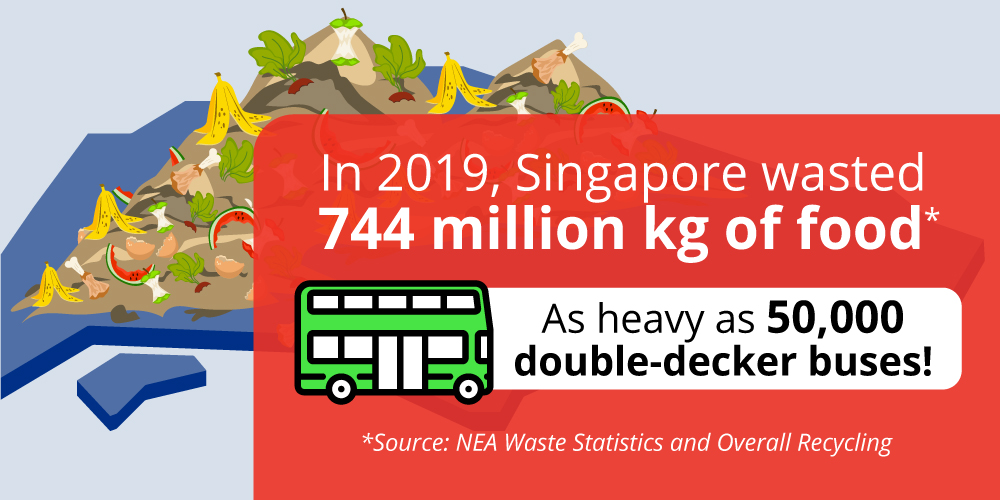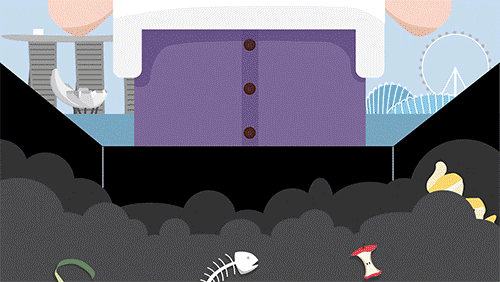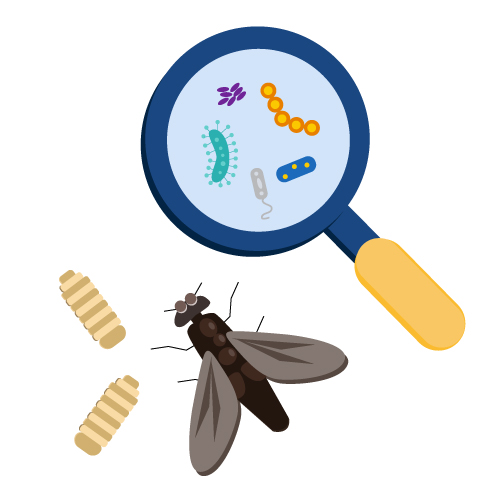A*STAR NEWS
As Singapore Grapples with a Food Waste Problem, A*STAR’s Scientists Find Ways to Manage It

An eye-watering amount of food is wasted every year in Singapore. In 2019 alone, Singapore wasted 744 million kg of food, about as heavy as 50,000 double decker buses. Unfortunately, as the amount of food waste grows in tandem with population growth and economic activity, this problem will only be exacerbated.
Having spotted economic opportunities for Singapore in the area of sustainability, A*STAR has been investing in R&D in life cycle management and engineering for more than a decade. To better meet the industry’s needs, the agency’s Singapore Institute of Manufacturing Technology (SIMTech) officially launched the Sustainability and Life Cycle Management Group in 2019. It co-ordinates research across A*STAR, the universities, and industry to develop solutions that address challenges including food waste management.

Dr Jonathan Low Sze Choong, Senior Scientist, shares how his team transfers technologies and knowledge to the industry through projects and training courses to help companies improve resource efficiencies and reduce their carbon footprint.
What are some surprising things about food waste that many people don’t know?
According to a 2019 report by the Food and Agriculture Organization of the United Nations, about 25 to 30 per cent of food produced globally is lost or wasted every year. This amount is more than enough to feed the undernourished 10 per cent of the world’s population.
And if you consider that almost a third of global carbon emissions is contributed by food production, when we waste food, we are generating 10% of global carbon emissions for nothing! This is on top of the 10% of global carbon emissions generated when the food waste end up in landfills or incinerators.

-
How does A*STAR support Singapore’s food waste management plans?
Like other sustainability-related problems, we need to tackle food waste management by applying ‘life cycle-thinking’. We analyse the food waste problem across the whole value chain so that the right problem statements are identified and meaningful solutions developed. This means looking at the problem from the point where food waste is first generated, through how it is handled and collected, to how it is finally treated. We analyse the problems and apply solutions more systematically and holistically to avoid “problem-shifting”.
-
What do you mean by avoiding “problem-shifting”?
For example, when it comes to food waste management, the first thing that many do instinctively is to deploy bio-digesters to recycle food waste. However, we need to understand that they are not a silver bullet in tackling food waste.
Bio-digesters often require energy and resources, and produce compost that somebody down the line has to find utility for. Given Singapore’s increasing amounts of food waste and limited land for traditional agriculture, the local demand for food waste-derived compost may not be sustainable. Thus, what happens is that the food waste problem has now become a compost oversupply problem, i.e. shifting the problem from the food waste generator to the ‘owner’ of the bio-digesters.
A more systematic and holistic approach would be to first look at how food waste could have been avoided in the first place, such as through process optimisation and redesign. Then the unavoidable, but reduced amounts of food waste could be tackled by deploying bio-digesters, which are right-sized and produce compost in more manageable amounts.

-
How does your team work with companies on their food waste management processes?
My team develops methodologies and tools based on the Life Cycle Assessment (LCA) concept to help companies measure and track the performance of their sustainability-related initiatives, which include food waste management. The principle is that what gets measured, gets improved.
For example, a methodology developed by SIMTech, and the Singapore Manufacturing Federation – Standards Development Organisation provides companies in the F&B industry with a systematic way to conduct food waste audit on their premises. It identifies food waste generation hotspots, the main causes, as well as suggests appropriate initiatives to reduce or recover value from food waste. It has been adopted as the underlying methodology of the Singapore standards on food waste management for food manufacturing and retail establishments. See the infographic on food waste management in Singapore for more details.
We have also worked with Deloitte and Temasek to assess the environmental impact of key food items in Singapore using the LCA approach. You can find out more about the project here.
-
What are some of the biggest challenges in food waste that Singapore F&B businesses face?
The perceived lack of business case for food waste management. We need solutions that not only help to tackle food waste across the whole value chain, but are also cost-effective to implement. Fortunately, we have good work in this area going on in A*STAR.
For example, scientists from A*STAR’s Institute of Materials Research and Engineering have developed nanotech-based food packaging that extends the shelf-life of food, thus reducing food waste.


And when we look downstream where food waste cannot be avoided, A*STAR’s Singapore Institute of Food and Biotechnology Innovation (SIFBI) is looking at deriving microbial protein from food waste, for example by converting a by-product of soy manufacturing, called Okara, into a probiotic fish feed ingredient for the aquaculture sector. SIFBI is also leveraging on the black soldier fly larvae to transform organic waste into protein for animal feed. Furthermore, there are synergies here with Singapore’s “30 by 30 goal” – where Singapore aims to produce 30 per cent of its nutritional needs locally by 2030.
What are some simple solutions to reduce food waste?

Reduce the amount of food waste being generated in the first place (i.e. at the source). Just start with a simple habit change by buying or ordering only what you can eat. This reduces both food waste and the waist line.
More About A*STAR
Was This Article Helpful ?
A*STAR celebrates International Women's Day

From groundbreaking discoveries to cutting-edge research, our researchers are empowering the next generation of female science, technology, engineering and mathematics (STEM) leaders.
Get inspired by our #WomeninSTEM
